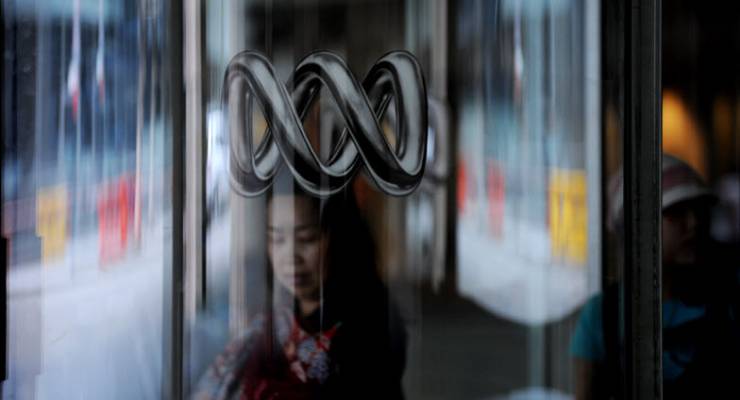
The government’s $84.7 million cut to the ABC from 2019, which may cost up to 160 jobs at the national broadcaster, stands out in a budget broadly committed to raising spending.
Between the 2017 and 2018 budgets, the government decided to spend an additional $3.6 billion this year and across the forward estimates beyond what it had already committed. This is in addition to its tax changes, and “parameter variations” that automatically shift spending and revenue in the absence of policy changes. According to last year’s budget papers, the ABC would have received $880 million in 2019-20 and $902 million in 2020-21. It will now receive $851 million in 2019-20, $849 million in 2020-21 and $855 million in 2021-22. This will make a 0.006% difference to government spending in 2019-20.
What’s more noteworthy is that the ABC is virtually alone in receiving a significant cut in the budget.
The Attorney-General’s Department will lose $20.3 million over five years “through efficiencies in departmental activities of the Attorney-General’s portfolio and through improved targeting of program expenditure.” The Department of Agriculture is losing $15 million over five years, but those are unspent grants funds, not departmental expenses.
Austrade is losing $6.6 million over five years internally and from programs. Immigration is losing over $250 million over five years, but it has been merged with other agencies and has significant duplication to cut, and is also receiving additional program funding and a big injection of cash for its IT systems. Industry is losing $30 million over two years but that’s from unspent grants. The Fair Work Ombudsman has had its funding frozen in 2019-20. As the Financial Review pointed out, corporate regulator ASIC is losing $26 million (the precise amount is complex because of equity injections, capital and amounts carried forward from previous years, but ASIC will lose 30 staff at a time when it is under attack for its inability to effectively regulate the banks).
Some agencies are getting more money: PM&C is getting $23.3 million over two years. Finance is getting $11 million (funny how central agencies, always so forensic in their examination of what line departments can cut, end up with more money). ASIO and ASIS received extra funding. The Governor-General’s Office is getting more funding. Only the ABC received a major cut, which comes four years after the Abbott government cut $35 million from the ABC’s base funding, meaning the government will have cut just under $120 million from the ABC’s base funding over eight years by 2022.
In contrast, last year News Corp-owned Foxtel received a grant of $30 million over four years in the budget. The media ownership reform package was accompanied by a $50 million regional and small publishers fund (extending to firms like Crikey). And the government also gave commercial television broadcasters a windfall of $415 million over five years by cutting licence fees, which came on top of licence fee cuts under Labor.
Those within ABC management who have deemed that it’s in the national broadcaster’s financial interests to pander to the government and suppress journalistic voices committed to reporting facts that may embarrass Malcolm Turnbull and Co might do well to reflect that the result is that the ABC is now both underfunded and cowed.








The funding cuts lead to production cuts leads to reduction in quality and local content leads to reduced viewer ratings leads to questions like why are tax payers funding this shit?
This is about the only evidence of long term planning from this government, unfortunately its a negative
Murdoch`s lackey Guthrie is doing the job on the ABC that Turnbull and Murdoch sent her to do, and all the crawling by the remaining ABC staff to hold onto their jobs will be wasted as they are soon to replaced by other Murdoch appointees, its embarrassing to watch Leigh sales and Trioli attacking any labor politicians but grovelling to Morrison and Turnbull at interviews, this is the end of the ABC as we know it and completes the total media take over by the turnbull/murdoch 4th Reich.
The Sweet and Sour Sauce isn’t confined to Sales and Trioli, there’s Lane, Alberici and even Jones, the difference in measure of scepticism and defference that make up their interviews – along party lines? Their blancmange servings of Limited News Party could send a diabetic into shock.
….. I miss seeing Palmer baste Jones in florid flattery.
“Welcome to Rupert Turnbull’s Mushroom Farm – Careful How Ewe Go.”
Anti-democratic, small minded, selfish and vindictive vandels. I believe the majority of Australian citizens would appreciate our representatives learning to live with less, before they are allowed to trash essential services and institutions. This is not a budget. This is a crime.
Some of us can recall when interviews were fearless on the ABC – the best example in the 21st century being Kerry O’Brien. He of steady nerves and with steely eye pinning his subject. If O’Brien has the stomach to listen to the ABC’s political interviews these days he must cringe in frustration and disbelief.